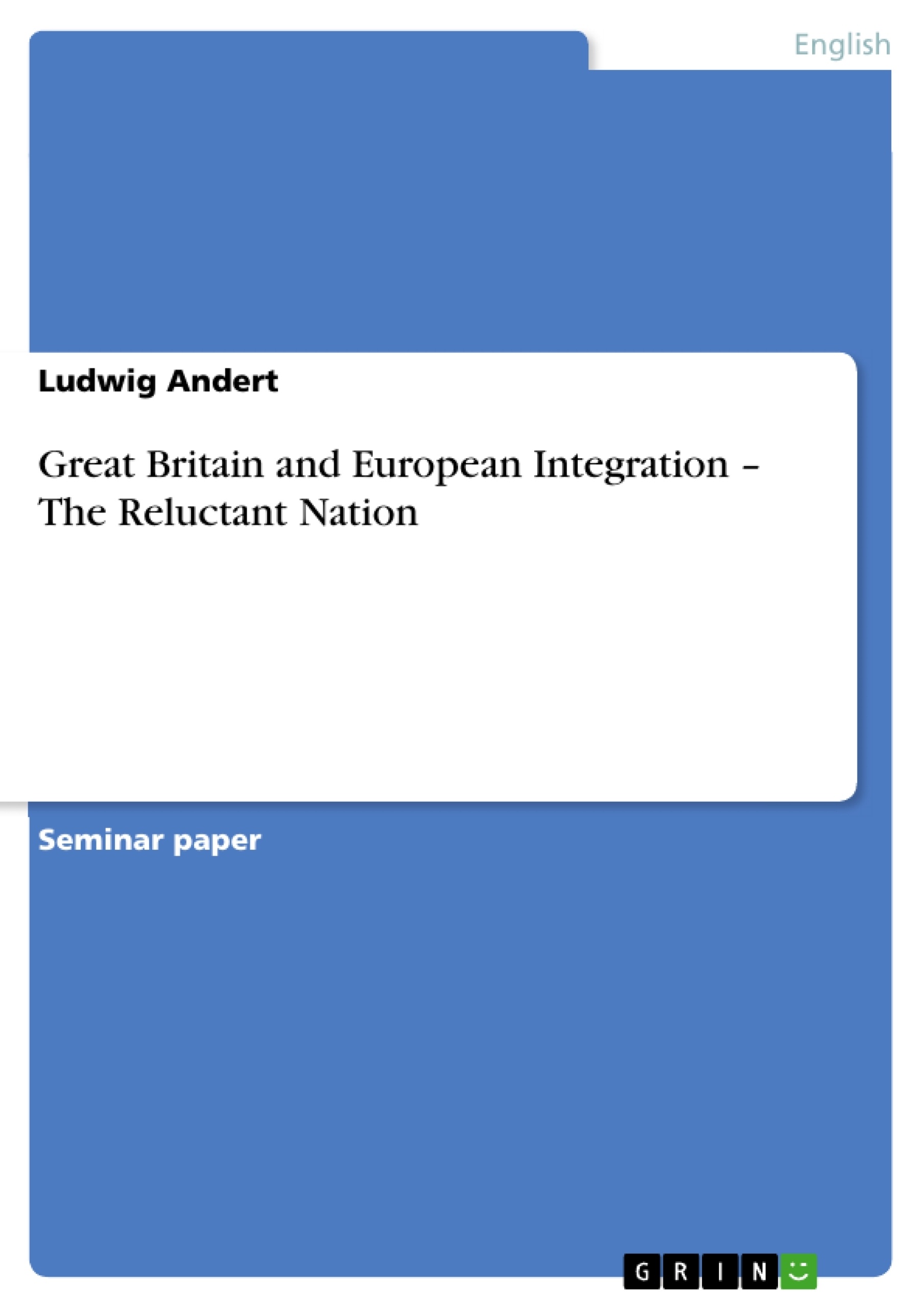This slightly exaggerated statement by the Bolshevik revolutionary, though referring to a soviet-republican idea of Europe, marks the borderlines of British ambivalence towards European integration after 1945: the fear of a supranational federation and the need for a peaceful, stable and free-trading Europe.
“I am British. I am not European” – These are the words of a shopkeeper who among a small group of other “metric martyrs” in 2001 refused to attach to the metric system that had been imported to Great Britain.2 This man was not a philosopher, a historian and certainly not a politician, and his fundamental belief did not refer to the Union, the Empire or the Continent, but to himself as an individual.
Is Great Britain’s reluctance to join the European Union – or rather: to consider oneself European – based entirely on metaphysical convictions, on emotions and ancient sentiments such as “the Empire”? Or are there reasonable arguments for British refusal of European alliance – economical reasons, considerations of power or even force?
Do the British consider themselves part of an “Anglo-American” axis or merely a bridge between Old Europe and the New World?
The following text gives an overview of the process of European integration from a British perspective. It will further discuss the difficulties in defining the difference between “British” and “European” as an attempt to answer the question whether the United Kingdom can be European while remaining British at all.
Inhaltsverzeichnis (Table of Contents)
- Introduction
- Great Britain and Europe until 1945
- Britain's way into the European Union
- 1945 - 1961
- 1961-1975
- 1975-1990
- 1990-now
- British vs. European
- Conclusion
Zielsetzung und Themenschwerpunkte (Objectives and Key Themes)
This text aims to provide an overview of Great Britain's relationship with European integration from a British perspective. It will explore the historical context, key events, and arguments for and against British involvement in the European Union. The text seeks to understand the complexity of British identity in relation to European integration, addressing the question of whether the United Kingdom can remain both European and British. Key themes explored in the text include:- British ambivalence towards European integration, stemming from historical factors and identity concerns
- The influence of historical events like the Suez crisis and the changing power dynamics in Europe on British policy
- The evolving nature of the European Union and its impact on British perception
- The economic, political, and cultural considerations behind British reluctance or willingness to participate in European integration
- The debate surrounding the definition of “Britishness” and “Europeanness” and its implications for British identity
Zusammenfassung der Kapitel (Chapter Summaries)
Introduction
The introduction sets the stage for the discussion by outlining the historical context of British ambivalence towards European integration, drawing parallels to Leon Trotsky's vision of a united Europe and highlighting the recurring tension between the fear of supranationality and the need for a stable and peaceful Europe.Great Britain and Europe until 1945
This chapter provides a historical overview of Great Britain's position in Europe, focusing on its role as a global empire and its evolving relationship with the Continent. It discusses the “relative decline” of the British Empire in the 20th century, marked by events such as Ireland's separation and the breakdown of the gold standard. The chapter concludes with the Second World War as a turning point, where the balance of power shifted and Britain was forced to redefine its role within the context of anti-communism, European cooperation, and Anglo-American alliance.Britain's way into the European Union
1945-1961
This section delves into the early stages of British involvement in European integration. It highlights Ernest Bevin's “third power” policy, which aimed for a Britain independent of, and equal to, America while acting as a bridge between the Continent and the US. The chapter explores the reasons behind Britain's initial reluctance to join the European Coal and Steel Community (ECSC), including the lack of strategic interest in controlling Germany, the reliance on trade with the Empire-Commonwealth, and the skepticism towards surrendering national sovereignty.- Quote paper
- Ludwig Andert (Author), 2006, Great Britain and European Integration – The Reluctant Nation, Munich, GRIN Verlag, https://www.grin.com/document/110740



